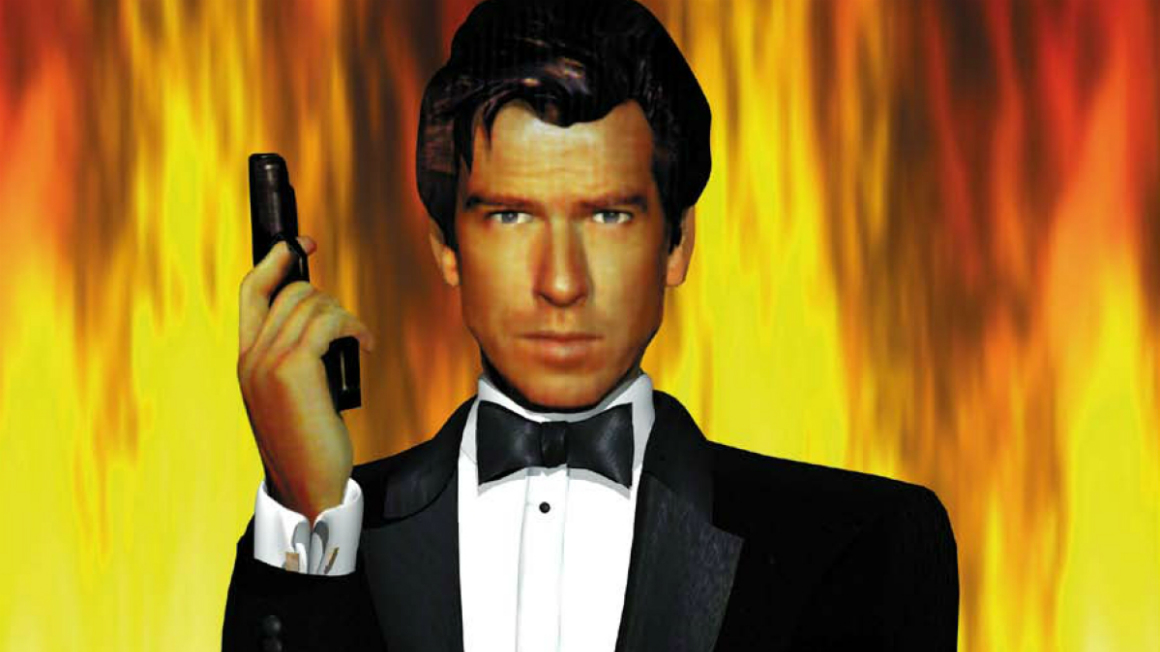How Call of Duty killed the first-person shooter
The lost legacy of GoldenEye

"Deadlines kill games," Steve Ellis tells us. "Sometimes things come together on plan but if you're trying to do something that is fundamentally a creative endeavour, trying to push boundaries and do things that are new, then things aren't always going to go according to plan because your plan isn't a plan it's a guess."
It's difficult to fault the logic of the man responsible for building GoldenEye's multiplayer mode on the Nintendo 64. You might also know him as the name behind the TimeSplitters franchise, which spanned five years and raked in critical praise by the bagful.
For Ellis, those were the glory days. A time before the onslaught of military first-person shooters, largely triggered by the Call of Duty franchise, took the genre hostage.
But during the development of GoldenEye back in the mid-90s, the fps was still in its infancy. Ellis and his team worked under the direction of Martin Hollis, who would later leave Rare to join Nintendo of America as a consultant on the creation of the GameCube. At that moment, none of them had any that their movie tie-in would explode in the way it did.
"We didn't really know at the time," insists Ellis. "We thought we were making something good, we weren't really following what anyone else had done because there wasn't much to even look at.
"It was a bunch of people who all but one hadn't worked on games before at all and we were just trying to make the best game that we could. We didn't have a strict deadline that we were working to."
And yet it turns out that GoldenEye's most celebrated feature, the multiplayer mode that Ellis designed, was nothing but an afterthought. The team only managed to add it on due to the game being delayed, and neither Rare nor Nintendo knew about it until after it was finished. The game was finally released in August 1997, almost two years after the film.
Sign up for breaking news, reviews, opinion, top tech deals, and more.
It sounds absurd, but as Ellis tells us, things were very different back then. "That was one of the good things about Rare," he says. "There was never a pressure that was put on the team, so we were just trying to make the best game that we could. We were massively late compared to when the game was supposed to come out but ultimately it worked out."
Sharp shooter
"Worked out" is one way to undersell it. GoldenEye's influence on the first-person shooter genre has been huge, and its multiplayer influence perhaps even more so.
"It wasn't until probably the last few years that I properly appreciated the fact that it's going to be considered a classic game," says Ellis. "I spent about ten years wondering when people would forget about it. And just coming to realise that actually maybe it is going to be one of those enduring classics that people do always remember, and that was just an interesting revelation. I didn't quite realise that."
After the success of GoldnEye came Perfect Dark, and then in 1999 Ellis and his team, which included David Doak, took off to form Free Radical Design. They then set to work on their next big hitter, TimeSplitters - a game driven by a thirst to offer something that the rest of the industry wasn't ready to.
"The whole thing about TimeSplitters was that it was to be the antithesis of all these other games," says Ellis.
"It was not about a character, it was about the variety and being able to mix and match characters and backgrounds, kind of like a sandbox. That's what we were going for with it, something where variety was the selling point."

Hugh Langley is the ex-News Editor of TechRadar. He had written for many magazines and websites including Business Insider, The Telegraph, IGN, Gizmodo, Entrepreneur Magazine, WIRED (UK), TrustedReviews, Business Insider Australia, Business Insider India, Business Insider Singapore, Wareable, The Ambient and more.
Hugh is now a correspondent at Business Insider covering Google and Alphabet, and has the unfortunate distinction of accidentally linking the TechRadar homepage to a rival publication.